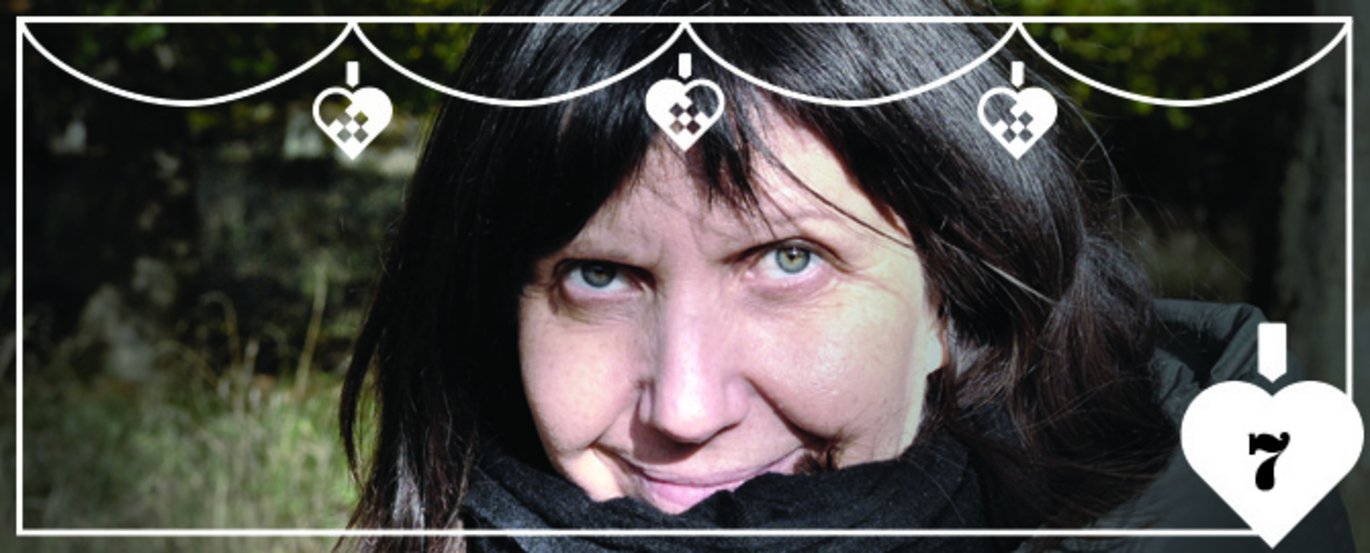7 December: I am not celebrating Christmas this year
Venka Simovska is professor and PhD at the Danish School of Education (DPU) in Emdrup. She is from North Macedonia where the church uses an old calendar called the Julian calendar and celebrate Christmas on January 7. Traditionally, there are no presents or Christmas tree.

The Omnibus Advent Calendar:
The Advent calendar is a treasured Danish Christmas tradition. In many families, kids get to open a small gift each day all December until Christmas Eve, when Christmas is celebrated.
Our small holiday gift to you is a chance to meet one of AU’s many international students and employees every day until Christmas.
All 24 will share where they’re spending Christmas this year, their favorite (and least favorite) Christmas traditions from their home countries, and what’s most annoying – or surprising – about Christmas in Denmark.
How are you going to celebrate Christmas this year?
I am not celebrating Christmas this year, due to personal loss. Actually, normally I do not celebrate Christmas other than traveling someplace warm and sunny.
What is the best / worst Christmas tradition from your home country?
I was born in Macedonia, which is now known as North Macedonia. This is a multicultural country, where the majority of the population is Christian, that is, Orthodox (as in Eastern Orthodox) Christian, and about 25% of the population is Muslim. The church in the country is separated from the state. The church uses an old calendar called the Julian calendar (from before the Byzantine period), which at present is 13 days behind the new (Gregorian) calendar adopted by the rest of Christianity. Thus, the Orthodox Churches that have not adopted the Gregorian calendar celebrate Christmas 13 days later, on January 7. This is the case in North Macedonia. Christmas is celebrated within families, with dinner comprising of fish and low fat food, including a home baked pitta bread with a coin hidden in it, determining who from the family will be “the lucky one” that year. Traditionally, there are no presents or Christmas tree; it is more religious/spiritual than a secular and consumer driven holiday. The Christmas tree we know from Denmark and Western European traditions, along with the presents, are observed on New Year’s Eve in North Macedonia. I like this separation of the consumerism and commercialism from Christmas, out of respect for people who are actually religious and celebrate the birth of Christ with this holiday. My family is not religious, so when I was growing up, we would just have quiet family dinner, and split the pitta bread to see who would get the lucky coin, more in a performative, fun way to spend the evening.
What do you think is most annoying about Danish Christmas?
I like Danish Christmas. There is something nice about its coziness, the candle lights, the comfort of tradition, social norms, predefined ways of celebrating and being together with family. At the same time, the very same tradition, norms and ways of doing Christmas delimit the space of an individual’s freedom to celebrate in alternative ways, to create new, different traditions, which would perhaps be more inclusive of family members who are not Danish or friends and other significant people in the lives of the Danes. Also, I am not a fan of the workplace Christmas celebrations, which normally involve a lot of alcohol, and again, are not sufficiently attentive to cultural differences and ways of celebrating. I am fan though of the lights and decorations in the city, and the small local design Christmas markets. I am also fan of gløgg and æbleskiver.
- Среќен Божиќ! (Sreken Bozik!)

The Omnibus Advent Calendar:
The Advent calendar is a treasured Danish Christmas tradition. In many families, kids get to open a small gift each day all December until Christmas Eve, when Christmas is celebrated.
Our small holiday gift to you is a chance to meet one of AU’s many international students and employees every day until Christmas.
All 24 will share where they’re spending Christmas this year, their favorite (and least favorite) Christmas traditions from their home countries, and what’s most annoying – or surprising – about Christmas in Denmark.

